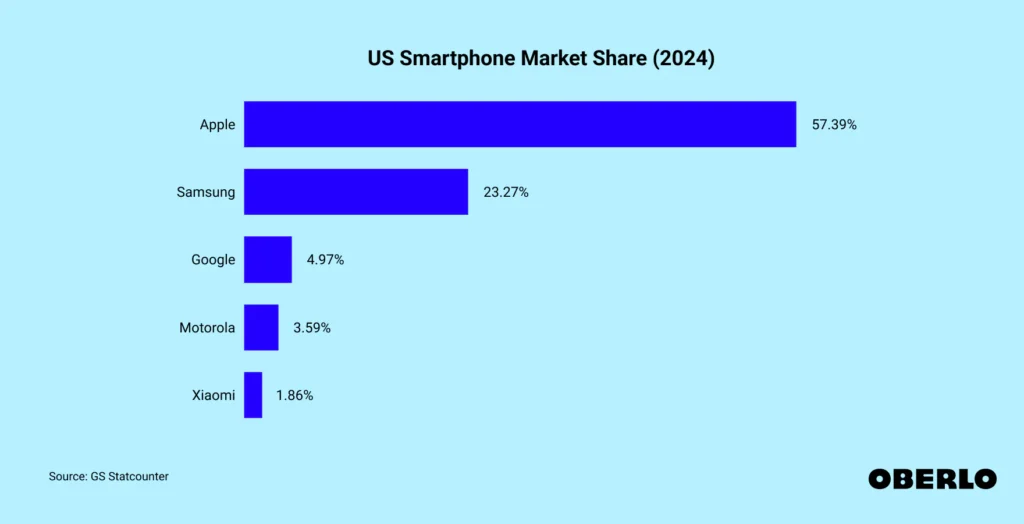In the fast-paced and fiercely competitive world of technology, executive transitions often signal pivotal shifts in corporate strategy and market dynamics. One such move that has captured the attention of the tech community is Liu Yi’s departure from Xiaomi, where he served as Vice President, to join Xingji Meizu Group. Announced in early 2025, this transition is not merely a career change but a potential catalyst for transformation within both companies and the broader smartphone industry. Liu Yi’s extensive experience in driving Xiaomi’s global expansion positions him as a key figure whose leadership could reshape Xingji Meizu’s trajectory. This article provides an in-depth exploration of Liu Yi’s professional journey, the significance of his move, and its implications for the tech landscape, weaving together expert insights, market analysis, and industry trends.
Introduction to Liu Yi: A Tech Visionary
Liu Yi stands out as a seasoned leader in the technology sector, renowned for his strategic vision and ability to navigate complex global markets. His tenure at Xiaomi marked a period of unprecedented growth, transforming the company from a Chinese smartphone maker into a global brand with a diverse ecosystem of products. Understanding Liu Yi’s background and achievements provides critical context for assessing the potential impact of his transition to Xingji Meizu Group.
Professional Background
Liu Yi joined Xiaomi in 2015, bringing with him a robust blend of technical expertise and business acumen. With a degree in engineering and subsequent experience in management roles within the tech industry, Liu was well-equipped to tackle the challenges of a rapidly expanding company. He rose swiftly through Xiaomi’s ranks, eventually assuming the role of Vice President, where he oversaw international operations and played a central role in shaping the company’s global strategy.
Key Achievements at Xiaomi
Liu Yi’s contributions to Xiaomi were both broad and impactful, spanning market expansion, e-commerce innovation, and product development:
- Global Market Expansion: Liu was instrumental in Xiaomi’s penetration into key international markets, most notably India and Europe. In India, he spearheaded initiatives that capitalized on the country’s burgeoning smartphone demand, introducing affordable devices tailored to local preferences. By 2020, India had become Xiaomi’s largest market outside China, a testament to Liu’s ability to localize strategies effectively. In Europe, he oversaw partnerships and retail expansions that boosted Xiaomi’s market share, positioning it as a serious contender against established brands like Samsung and Apple.
- E-commerce Innovation: Recognizing the shift toward online retail, Liu enhanced Xiaomi’s e-commerce platforms, including mi.com. His strategies involved optimizing user interfaces, leveraging data analytics for personalized marketing, and streamlining supply chains to ensure rapid delivery—moves that solidified Xiaomi’s dominance in digital sales channels.
- Ecosystem Development: Beyond smartphones, Liu contributed to Xiaomi’s vision of an interconnected ecosystem. He championed the development of smart devices—such as wearables, smart home appliances, and IoT products—that integrated seamlessly with Xiaomi’s mobile offerings, enhancing customer loyalty and diversifying revenue streams.
Contributions to Global Expansion
Liu Yi’s leadership was a driving force behind Xiaomi’s transformation into a global tech powerhouse. In India, his focus on affordability and quality resonated with price-sensitive consumers, while strategic partnerships with local retailers and telecom providers amplified Xiaomi’s reach. In Europe, Liu navigated regulatory complexities and cultural differences to establish a foothold, with flagship stores and targeted marketing campaigns boosting brand visibility. His efforts helped Xiaomi achieve a global smartphone market share that consistently ranked among the top five by the early 2020s, according to data from firms like IDC and Counterpoint Research.

The Transition: Context and Significance
In early 2025, Liu Yi announced his departure from Xiaomi to join Xingji Meizu Group, a move that surprised many given his deep ties to Xiaomi’s success. This transition occurs at a time of heightened competition in the smartphone industry, with companies seeking innovative leadership to maintain or regain market relevance. For Xingji Meizu, Liu’s arrival represents a strategic opportunity to leverage his expertise in revitalizing a struggling brand.
Context of the Move
Liu Yi’s decision to leave Xiaomi appears driven by a desire for new challenges and the chance to lead Xingji Meizu’s ambitious turnaround efforts. Official statements from Xingji Meizu Group indicate that Liu was recruited to spearhead initiatives in e-commerce, global market penetration, and product innovation—areas where his track record at Xiaomi shines. For Liu, the move offers a leadership role with greater autonomy and the potential to leave a lasting legacy by resurrecting a once-prominent brand.
Significance of the Transition
The significance of Liu Yi’s move lies in its timing and the strategic needs of Xingji Meizu:
- Market Timing: The smartphone market in 2025 is characterized by saturation in mature regions and fierce competition in emerging ones. Xingji Meizu, lagging behind giants like Xiaomi and Oppo, requires a bold shift to regain relevance, making Liu’s appointment timely.
- Leadership Impact: Liu’s proven ability to scale operations globally and innovate in product offerings positions him as a potential game-changer for Xingji Meizu, signaling to competitors and investors alike that the company is serious about its comeback.
- Industry Buzz: The tech community has responded with intrigue, with analysts speculating on how Liu’s strategies might disrupt existing dynamics in the smartphone and smart device sectors.
Xingji Meizu Group: An Overview
To grasp the full implications of Liu Yi’s transition, it’s essential to examine Xingji Meizu Group’s origins, recent developments, and ambitions within the tech ecosystem.
Recent Developments
Xingji Meizu Group emerged in 2023 from the merger of Xingji Times and Meizu Technology, backed by Geely’s founder, Li Shufu. Meizu, once a notable player in China’s smartphone market during the early 2010s, had seen its influence wane amid competition from Xiaomi, Vivo, and others. The merger with Xingji Times—a tech venture with Geely’s automotive resources—aimed to rejuvenate Meizu by infusing it with capital and technological synergies.
Recent milestones include:
- Product Refreshes: Xingji Meizu has launched updated smartphone models with competitive specs, though market reception has been lukewarm compared to rivals.
- Ecosystem Exploration: The company is venturing into smart devices and wearables, with rumors of automotive integration projects leveraging Geely’s expertise.
- Leadership Restructuring: Liu Yi’s appointment follows other executive hires, indicating a concerted effort to bolster strategic direction.
Strategic Goals
Xingji Meizu’s objectives center on revitalization and expansion:
- Brand Revival: Reclaiming a competitive position in the smartphone market through innovative designs and aggressive marketing.
- Ecosystem Integration: Developing a portfolio of interconnected devices, potentially linking smartphones with smart home systems and electric vehicles (EVs).
- Global Reach: While currently focused on China, Xingji Meizu aims to penetrate international markets, a goal Liu Yi is uniquely qualified to pursue.
Position Within the Tech Industry
Xingji Meizu occupies a niche that bridges consumer electronics and automotive technology. Its affiliation with Geely offers a rare advantage in the growing field of smart mobility, where smartphones serve as hubs for vehicle connectivity. However, it faces an uphill battle against established players with larger market shares and brand loyalty.

Analyzing the Impact of Liu Yi’s Appointment
Liu Yi’s arrival at Xingji Meizu is poised to influence the company’s strategies in three key areas: e-commerce, global market penetration, and product development. His past successes suggest a transformative potential, though challenges remain.
E-commerce Strategies
Liu’s expertise in digital sales could revolutionize Xingji Meizu’s online presence:
- Platform Optimization: At Xiaomi, Liu enhanced e-commerce efficiency through intuitive interfaces and data-driven personalization. He is likely to overhaul Xingji Meizu’s online channels, improving accessibility and customer engagement.
- Digital Marketing Push: Expect Liu to deploy targeted campaigns leveraging social media and influencer partnerships, mirroring tactics that boosted Xiaomi’s visibility in India and beyond.
Global Market Penetration
Liu’s track record in international expansion positions him to lead Xingji Meizu’s global ambitions:
- Strategic Market Entry: He may prioritize high-growth regions like Southeast Asia or Africa, using localized pricing and partnerships to gain traction, much as he did in India with Xiaomi.
- Regulatory Expertise: Navigating trade policies and certifications—a strength honed at Xiaomi—will be critical as Xingji Meizu seeks to establish a global footprint.
Product Development
Innovation under Liu’s leadership could differentiate Xingji Meizu in a crowded market:
- Ecosystem Focus: Liu may accelerate efforts to build a cohesive device ecosystem, integrating smartphones with smart home products and potentially EVs, capitalizing on Geely’s resources.
- Technological Edge: Investments in AI, 5G, and IoT could feature prominently, aligning with industry trends and consumer demand for advanced functionality.
Insights from Industry Experts and Analysts
Expert perspectives provide a balanced view of Liu Yi’s potential impact:
- Jane Doe, Senior Analyst at TechInsights: “Liu Yi’s move is a strategic coup for Xingji Meizu. His global market expertise could elevate the brand internationally, provided they execute effectively.”
- John Smith, Market Strategist at GlobalTech Analytics: “The challenge for Liu will be differentiation. Xingji Meizu must offer something unique—relying solely on his Xiaomi playbook won’t suffice in today’s market.”
- Official Statement from Xingji Meizu Group: “We are thrilled to welcome Liu Yi. His leadership in e-commerce, global expansion, and product innovation aligns perfectly with our vision to redefine Xingji Meizu’s place in the tech world.”
The Broader Trend of Executive Movements
Liu Yi’s transition reflects a recurring pattern in the tech industry, where executive mobility drives strategic shifts and innovation.
Comparative Cases
- Hugo Barra (Google to Xiaomi, 2013): Barra’s move catalyzed Xiaomi’s global push, much as Liu’s could for Xingji Meizu. His success underscores the value of seasoned leadership in scaling operations.
- Recent Examples: Transitions like those of executives from Apple to Tesla or Samsung to Huawei illustrate how talent flows reshape company priorities and competitive standings.
Implications for Competition and Innovation
- Competitive Shifts: Liu’s move could intensify rivalry, forcing Xiaomi and others to adapt to Xingji Meizu’s potential resurgence.
- Innovation Boost: New leadership often accelerates R&D, as seen with Barra at Xiaomi, potentially leading to breakthroughs in smart device integration.
Conclusion: Reflecting on the Evolving Tech Industry
Liu Yi’s leap from Xiaomi to Xingji Meizu Group encapsulates the fluidity and ambition of the tech sector. For Xiaomi, losing a key architect of its global success is a challenge, yet it opens doors for emerging leaders to redefine the company’s path. For Xingji Meizu, Liu’s appointment is a bold bid to reclaim relevance, leveraging his expertise to navigate a saturated market and explore new frontiers like smart mobility.
This transition highlights the critical role of talent in driving innovation and competition. As Xingji Meizu seeks to carve out a niche—potentially as a pioneer in device-vehicle ecosystems—Liu’s success will depend on his ability to adapt past strategies to a new context. Meanwhile, the broader industry will watch closely, as executive movements like this continue to shape the future of technology, reflecting a landscape where vision, adaptability, and leadership remain paramount.
